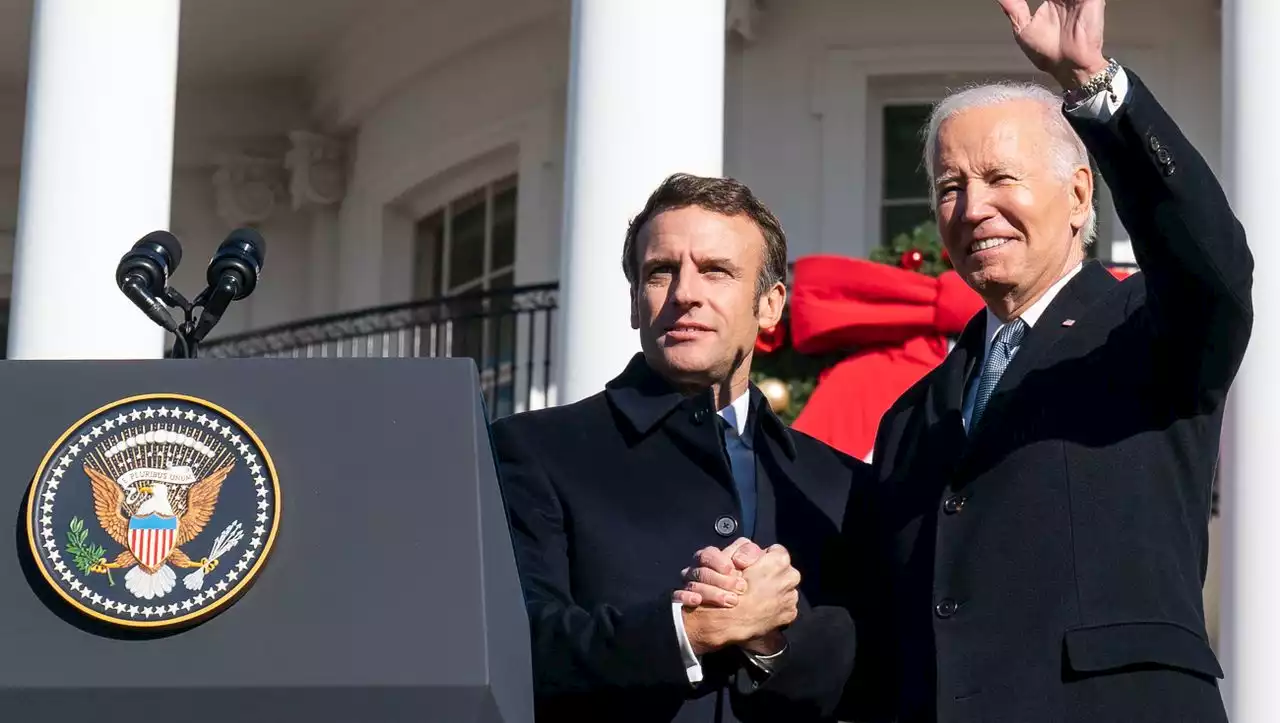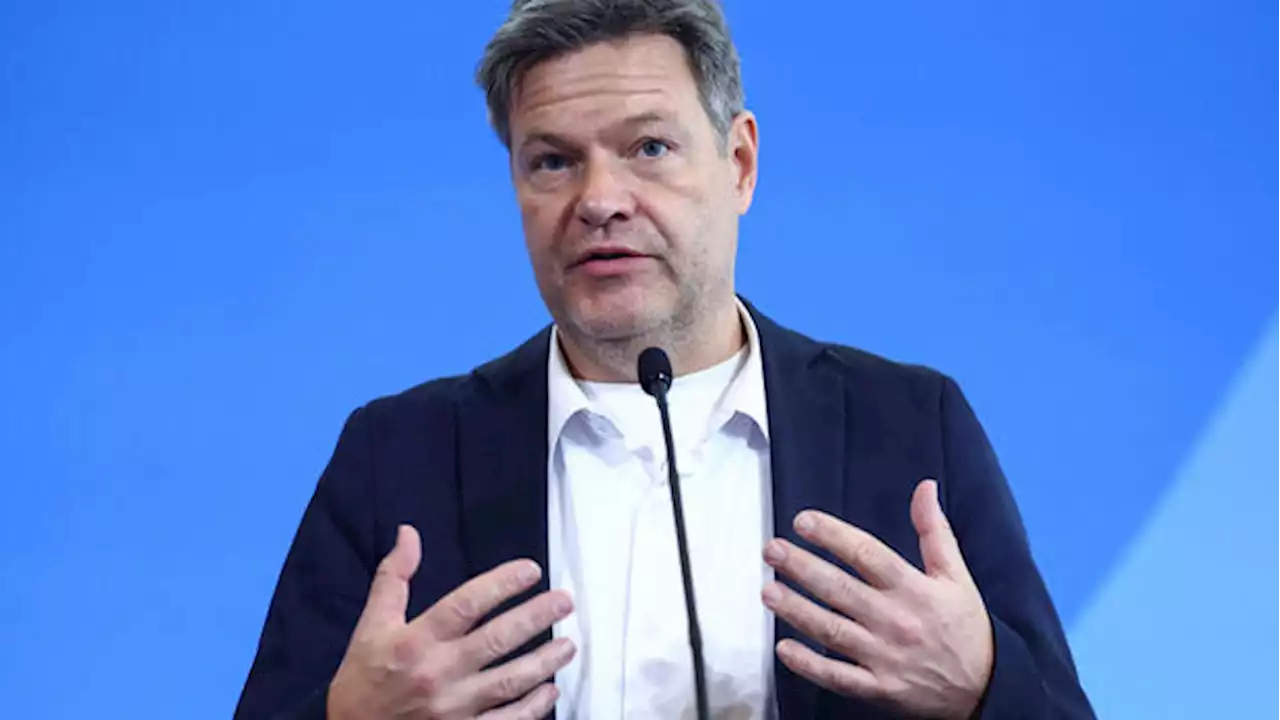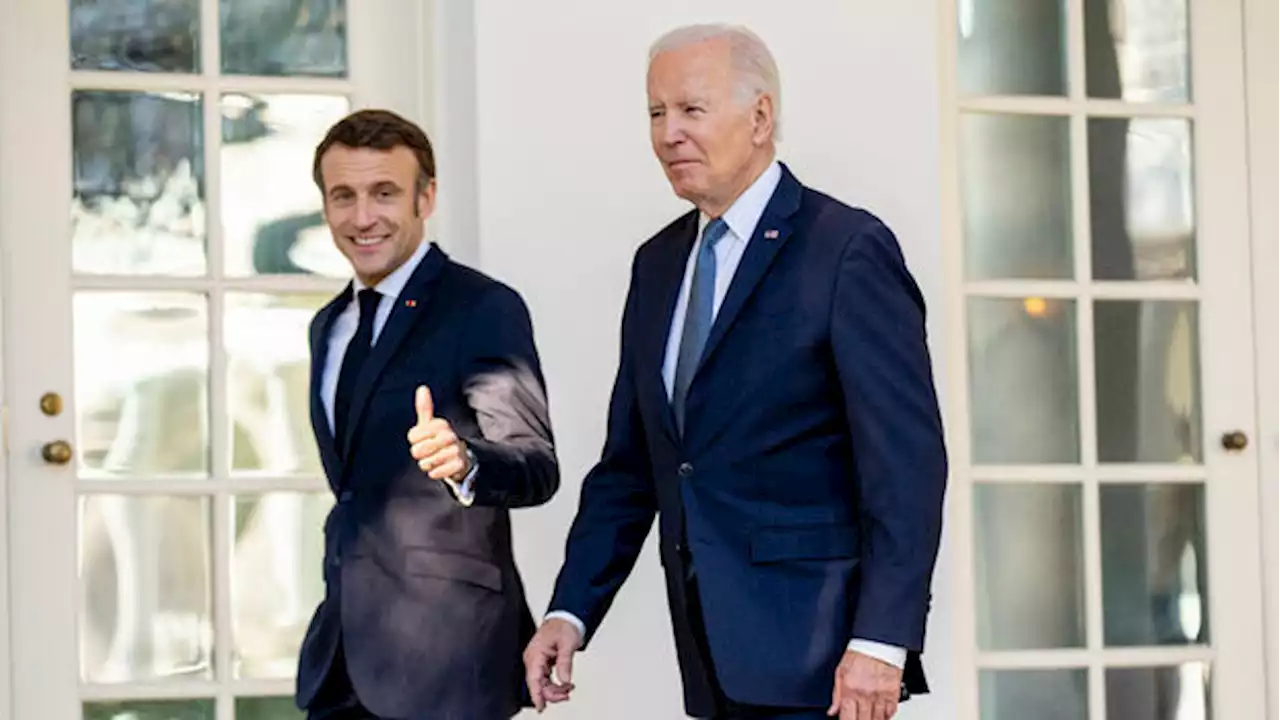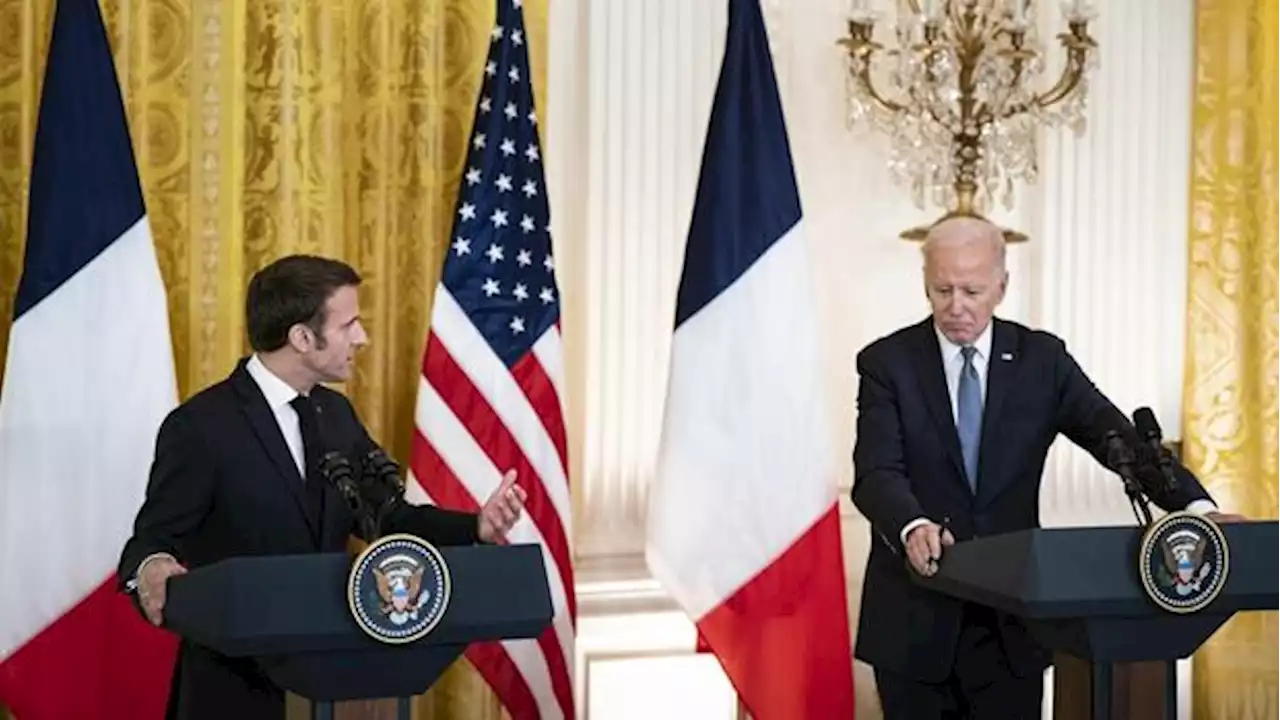U.S. President Joe Biden has adopted a heavy-handed approach to China and hopes to cut Beijing off from modern chip technologies. To do so, he will need European support. Will he get it?
They cost up to $200 million each and weigh 180 tons. Delivering them requires loading individual parts into three jumbo jets. Once assembled, they are as big as a bus and packed with a high-powered laser, precision lenses and electric robots. Lithography machines can be used to manufacture semiconductors for smartphones, cars or even jet aircraft and the Dutch company ASML supplies this top European technology to chip factories all over the world. But not to China.
The"chip war," as heralded in a bestselling book by American historian Chris Miller, is now in full swing. For years, few politicians had any interest in the tiny components, commodities that are now part of practically every electronic consumer and investment product. It was only experts who worried that the industry was becoming dangerously consolidated because of the gigantic development costs.
This marks a turning point that isn’t sparking enthusiasm everywhere, and certainly not within German industry. Baden-Württemberg machine manufacturer Trumpf, for example, generates almost a fifth of its sales with ASML, for which it supplies the lasers for its most advanced machines. The latest U.S. regulations won't directly affect that, because exports of high-end systems to China were already prohibited before.
In mid-November, company CEO Jochen Hanebeck surprised everyone by announcing plans to build a new plant in Dresden at a cost of 5 billion euros. This could push forward"the green and digital transformation in Europe," Hanebeck said last month. He said it would"strengthen Europe's resilience in times of growing semiconductor demand."
The demand made by industry shows that the chip war has also developed into a subsidy race in which not only the U.S. and Europe, but also Asian countries like Japan and South Korea are taking part. Governments in the West are now shelling out triple-digit billions to slow China’s rise. And this to the delight of highly profitable corporations like Intel in the U.S., Samsung in South Korea and Rohm in Japan.
Italia Ultime Notizie, Italia Notizie
Similar News:Puoi anche leggere notizie simili a questa che abbiamo raccolto da altre fonti di notizie.
 (S+) Emmanuel Macron bei Joe Biden: Verhandeln mit Russland, aber wie?Emmanuel Macron präsentiert sich in den USA als Wortführer Europas und denkt laut über Friedensgespräche mit Russland nach. Auch Präsident Joe Biden zeigt sich offen – aber unter Bedingungen.
(S+) Emmanuel Macron bei Joe Biden: Verhandeln mit Russland, aber wie?Emmanuel Macron präsentiert sich in den USA als Wortführer Europas und denkt laut über Friedensgespräche mit Russland nach. Auch Präsident Joe Biden zeigt sich offen – aber unter Bedingungen.
Leggi di più »
 China: Papier: Bundeswirtschaftsministerium will Regeln für China-Geschäft verschärfenDas Wirtschaftsministerium will autoritäre Staaten offenbar von der kritischen Infrastruktur ausschließen. Auch werden umfangreiche Mitteilungspflichten gefordert.
China: Papier: Bundeswirtschaftsministerium will Regeln für China-Geschäft verschärfenDas Wirtschaftsministerium will autoritäre Staaten offenbar von der kritischen Infrastruktur ausschließen. Auch werden umfangreiche Mitteilungspflichten gefordert.
Leggi di più »
 Macron beschwört Biden: Frankreich und USA müssen 'wieder Waffenbrüder werden'Trotz Spannungen in den transatlantischen Handelsbeziehungen haben Frankreichs Staatschef Emmanuel Macron und US-Präsident Joe Biden den Schulterschluss gesucht.
Macron beschwört Biden: Frankreich und USA müssen 'wieder Waffenbrüder werden'Trotz Spannungen in den transatlantischen Handelsbeziehungen haben Frankreichs Staatschef Emmanuel Macron und US-Präsident Joe Biden den Schulterschluss gesucht.
Leggi di più »
 Außenpolitik: „Wieder Waffenbrüder werden“: Biden und Macron nähern sich im Handelsstreit anDem französischen Präsidenten Macron wurde im Weißen Haus ein großer Empfang bereitet. Bei dem umstrittenen Inflationspaket blieben beide aber unkonkret.
Außenpolitik: „Wieder Waffenbrüder werden“: Biden und Macron nähern sich im Handelsstreit anDem französischen Präsidenten Macron wurde im Weißen Haus ein großer Empfang bereitet. Bei dem umstrittenen Inflationspaket blieben beide aber unkonkret.
Leggi di più »
 Kommentar : Biden und Macron sind allenfalls in ihrer protektionistischen Haltung vereintVom Treffen der beiden Präsidenten gibt es kaum Substanzielles zu berichten, dafür umso mehr Plattitüden. Substanzielle Zugeständnisse im Subventionsstreit sind kaum zu erwarten.
Kommentar : Biden und Macron sind allenfalls in ihrer protektionistischen Haltung vereintVom Treffen der beiden Präsidenten gibt es kaum Substanzielles zu berichten, dafür umso mehr Plattitüden. Substanzielle Zugeständnisse im Subventionsstreit sind kaum zu erwarten.
Leggi di più »
 Promi-Aufgebot im Weißen HausZum Staatsbankett von Joe Biden sind am Donnerstag zahlreiche Stars wie Jennifer Garner und Chrissy Teigen im Weißen Haus erschienen.
Promi-Aufgebot im Weißen HausZum Staatsbankett von Joe Biden sind am Donnerstag zahlreiche Stars wie Jennifer Garner und Chrissy Teigen im Weißen Haus erschienen.
Leggi di più »
